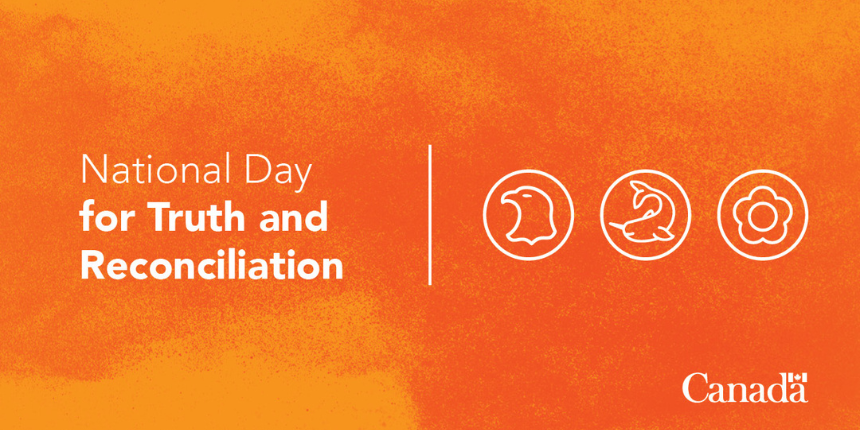

September 30 marked the National Day for Truth and Reconciliation and Orange Shirt Day, a day to honour survivors, the missing children, their families, and their communities, and to reflect on the lasting impacts of colonization on Indigenous Peoples across what we now call Canada. The day is also an opportunity for individuals, organizations, and professions to consider how they can contribute to truth and reconciliation.
At Engineers Canada, we recognize that our work to advance truth and reconciliation in the engineering profession begins with our own learning. In late September, Engineers Canada staff participated in a Kairos Blanket Exercise, an experiential teaching tool that was developed by the Aboriginal Rights Coalition (which became part of KAIROS in 2001) working with Indigenous Elders and educators.
Led by Kairos facilitators Theland Kicknosway and Caley-Rain Anderson, the Blanket Exercise took Engineers Canada staff through 500 years of shared history between Indigenous and non-Indigenous peoples in Canada. Through role play, storytelling, and movement across blankets representing the land, participants symbolically experienced the processes of settler colonization: the arrival of Europeans and the taking of land, the signing of treaties, the impacts of residential schools and the Sixties Scoop, and the effects of systemic discrimination that persist to this day. The exercise was followed by discussion, allowing staff to reflect on their learnings and the experience of the Blanket Exercise.
“We chose to undertake the Blanket Exercise because our work to advance truth and reconciliation in the engineering profession must start in-house,” said Jeanette Southwood, P.Eng., Executive Vice President, Corporate Affairs and Strategic Partnerships, at Engineers Canada. “Our ability to support and guide the profession in advancing truth and reconciliation depends on our own awareness and willingness to learn. By strengthening this foundation among our staff, we are better positioned to embed truth and reconciliation into our work.”
Engineers Canada recognizes the critical importance of advancing truth and reconciliation with Indigenous Peoples and ensuring that there is meaningful Indigenous representation within the engineering profession and that the profession respects Indigenous knowledge systems, rights, and aspirations. This work forms part of one of Engineers Canada’s strategic directions, “Realizing an inclusive profession.”
Currently, Engineers Canada is working to develop a National Truth and Reconciliation Framework and Action Plan to provide direction and guidance to the broader engineering community and to Engineers Canada in our journey towards truth and reconciliation. The framework will serve as an umbrella guidance document for Engineers Canada to focus its efforts to advance reconciliation with Indigenous Peoples. Meanwhile, the action plan will be crucial for implementing the recommendations of the Truth and Reconciliation Commission (TRC) and advancing reconciliation, guided by the United Nations Declaration on the Rights of Indigenous Peoples (UNDRIP). It will provide a roadmap of specific actions and commitments for Engineers Canada and how we can help advance reconciliation within engineering regulation, amongst engineering employers, and within post-secondary engineering faculties to address the legacy of residential schools and build a more just and equitable future for Indigenous Peoples in engineering.
The Kairos Blanket Exercise was one step in a long journey towards truth and reconciliation at Engineers Canada. Guided by respect, humility, and action, Engineers Canada will continue embedding truth and reconciliation into our work and into the future of the engineering profession.
“We chose to undertake the Blanket Exercise because our work to advance truth and reconciliation in the engineering profession must start in-house,” said Philip Rizcallah, P.Eng., CEO at Engineers Canada.
Adds Jeanette Southwood, P.Eng., Executive Vice President, Corporate Affairs and Strategic Partnerships, at Engineers Canada, “Our ability to support and guide the profession in advancing truth and reconciliation depends on our own awareness and willingness to learn. By strengthening this foundation among ourselves and our Engineers Canada colleagues, we are better positioned to embed truth and reconciliation into our work.”


